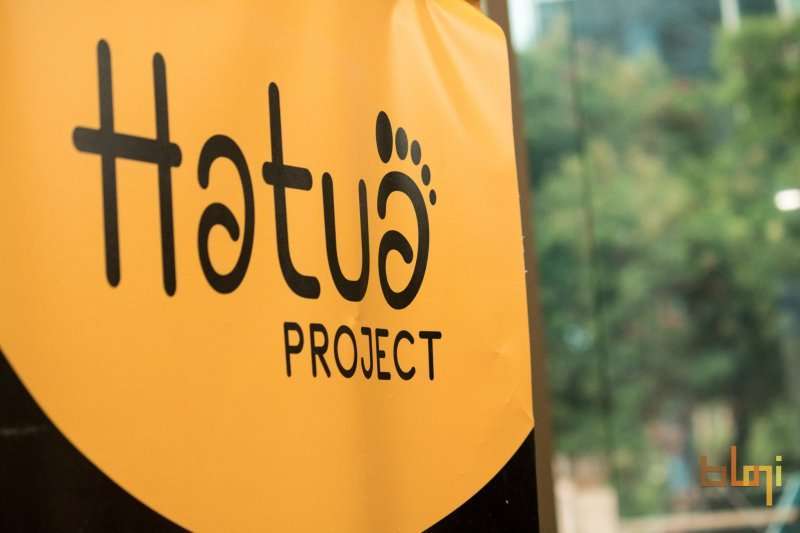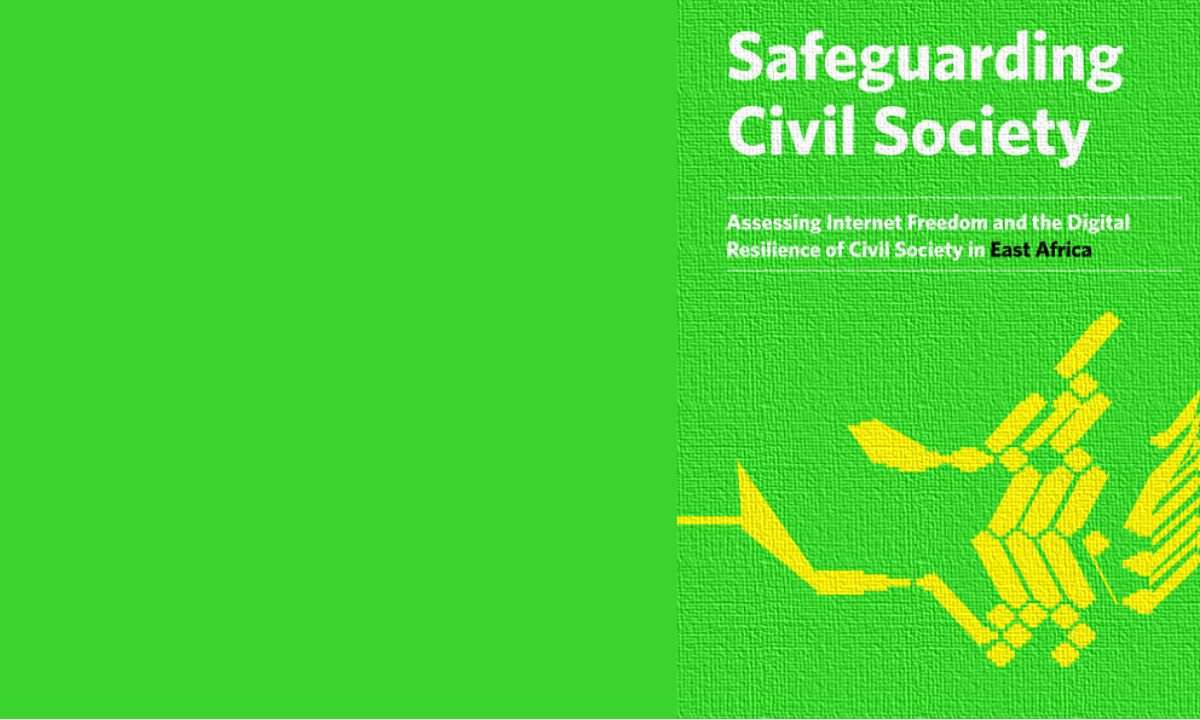By MISA Tanzania Correspondent |
A prevailing culture of secrecy among public officials in Tanzania at both central and local government levels is hindering the work of journalists, according to findings by a recent study. This is affecting access to information necessary for media reporting towards increased civic participation, transparency and accountability in governance.
The study which was conducted by the Media Institute of Southern Africa (MISA) Tanzania Chapter in partnership with the Collaboration on International ICT Policy for East and Southern Africa (CIPESA) assessed the responsiveness of local government authorities (LGAs) and central government offices in Tanzania to citizens’ information requests.
The study found widespread laxity among officials in processing information requests, with many claiming to have misplaced or lost filed requests. “If you received someone’s documents, why would you say you can’t see them just a week later?” wondered Haika Kimaro, a newspaper correspondent in Mtwara town in the south-east of Tanzania. In the port town of Kigoma, Rhoda Ezekiel, a correspondent with Uhuru Newspaper, recounted how the secretary of the Ujiji Municipal Council once claimed to have misplaced her information request when she followed up on a query she had submitted.
Radio journalist George Binagi shared a similar experience from the town of Mwanza: “I submitted my questions in writing to the Regional Commissioner’s Office. I went back 10 days later and did not get the answers. They looked for my letter and [claimed they] never saw it.”
But it is not only the media affected by limited access to public information. Researchers are affected too. During the study, Jacqueline Jones, a mass communication graduate and intern at MISA Tanzania, went to the Dar es Salaam Regional Commissioner’s office posing as a student researcher. She requested for information pertaining to the office’s functions, ongoing projects, income and expenditure. However, she was turned away for lack of an introduction letter from a university, with officials claiming that work procedures do not allow them to disclose information without such a letter.
“Their customer service is awful and the people at the registry department were quite harsh and rude. One of them actually shouted at me for insisting on getting my answers in a written form,” said Jones.
She submitted a similar request to the Dar es Salaam City Council, which, according to the city’s Information Officer needed approval by at least four different Heads of Sections. The Information Officer provided her with the requested information upon receipt of the approvals.
Alternative platforms for accessing information offered their own challenges. According to Zulfa Musa, a Mwananchi Newspaper correspondent in Arusha, administrative assistants manage the City Council offices’ telephone numbers and getting in touch with the Director or his Secretary to request for information required one to have these officials’ personal phone numbers. It was difficult to make information requests as the administrators were reluctant to provide the personal contact information of the Director or his secretary.
The frustrations faced by the journalists who took part in the study indicates that it is likely that citizens face similar or worse challenges.
It is widely recognised that access to quality and timely information for citizens is crucial in facilitating informed dialogue, monitoring and evaluation of development issues at the local level, thereby accountable governance and improved public services delivery.
Gasirigwa Sengiyumwa, the National Director for MISA Tanzania, stated that whereas an Access to Information Act was passed in 2016, “it appears that both public servants and the general public remain unaware of this Law.” He added: “There is a need for sensitisation about the law through training workshops for both parties [public officials and citizens] to ensure that the rights and responsibilities provided for under the law are realised.”
The study was conducted as part of the ICT4Democracy in East Africa initiative’s objective to document and publicise the utility and effectives of Information and Communication Technologies (ICT) for government-citizen interaction, proactive information disclosure, and responsiveness to information requests, for the realisation of the right of access to information.
Seven out of Tanzania’s 28 regions were covered in the study, with a total of 28 information requests filed to 14 institutions during March and April 2017. The written requests were emailed as well as hand-delivered to the institutions. Follow ups on approval or denial of requests was conducted through phone calls and physical visits.
Read the full study at here.
Youth in the Civic and Social Tech Arena in Tanzania
By Ashnah Kalemera |
Sandra Kitenge, a student of Mbezi High School, is determined to bridge the gender gap in technology in Tanzania. Having benefited from the Apps and Girls programme that empowers girls with computer literacy and coding-for-change skills, she sought avenues through which she could contribute to amplifying grassroots voices as part of electoral processes in Tanzania. The solution: an idea for a mobile app known as Tujibu (Swahili for “answer us”) through which grassroots communities can interact with leaders on their manifestos so they can make informed election decisions.
Alongside her studies, Sandra has since 2015 conceptualised her idea and last May finalised the web interpretation for the app. Currently, she is working on the hosting for the app and hopes to have a prototype by September.
“The app will help leaders know the needs of their people and promote accountability in fulfilment of pledges,” she says.
Tujibu was among four technology tools presented at the first Civic and Social Tech in East Africa showcase hosted by CIPESA in partnership with Buni Innovation Hub in Dar es Salaam, Tanzania on June 16.
Another tool showcased at the event was KodiYangu, a website on tracking the utilisation of tax funds in Tanzania. Currently in prototype stage, the website is expected to enable citizens to give feedback on priority areas for budget allocations and also inform relevant advocacy and awareness raising initiatives. KodiYangu is being incubated by the Hatua Project, an initiative for catalysing citizen engagement and innovation.
The reason as to why social media can be a powerful tool to facilitate #CivicEngagement #GovernmentAccountability @cipesaug @SparkSahara pic.twitter.com/lVTDBXkhGQ
— BUNI (@bunihub) June 16, 2017
Also showcased was Changia, a mobile-based platform under development by the youth-led Tujenge software development company. The app, currently in testing phase, is aimed at community fundraising at local government level for health, water, and infrastructure challenges. Through the platform, duty bearers are able to fundraise for identified community concerns and citizens are also able to hold the leaders to account for funds collected.
Meanwhile, the web-based Platform for Youth and Policy Exchange (PYPE) will be aimed at promoting awareness and engagement among youths on policy issues. Using interactive online media and tools, PYPE will maintain a policy database on various sectors and conduct polls on specific youth policy issues.
“Youths can only effectively engage in governance if they are aware of the policies relevant to them and are able to follow up on implementation,” says Farhan Yusuf, a member of the PYPE developer team. An official from the Tanzania Policy Dialogue pledged to work with PYPE on policy analysis and advocacy following the Yusuf’s presentation at the showcase.
According to various developers, an ongoing challenge for social and civic tech innovation in Tanzania is the limited availability of information. Edwin Paul of KodiYangu says that, for the tax revenue and budget allocations, the latest figures they were working with were for the 2013/2014 financial year. “We don’t have access to the figures for the following years,” he adds. Nonetheless, developers hope that implementation of the recently passed Tanzania Access to Information Act, 2016 may help in making information more widely availability.
See this on the Right to Information in Tanzania: Insights on the Laws, Policies andPractices
Other challenges that Tanzanian developers face include high levels of illiteracy and low incentives for adoption of civic tech tools by duty bearers and citizens. Moreover, given ongoing cyber security challenges, participants at the tools showcase urged developers to make ensure their platforms have strong security provisions to safeguard against hackers, filter spam, and secure users’ information.
Panelists are ready.We're on the next phase of the forum #civicengagement #socialinclusion @cipesaug @ICT4DemEA @musakamata @BasilMalaki pic.twitter.com/zd0meoY6fy
— Sahara Sparks (@SparkSahara) June 16, 2017
A panel comprising of representatives from the United Nations Association of Tanzania, the Forum for Climate Change Tanzania, Open Society Initiative East Africa (OSIEA) Tanzania office, the Tanzania Bora Initiative and Jamii Forums also discussed the impact of civic tech on engagements between citizens and duty bearers, as well as on improved governance in Tanzania. The panellists noted that application of technology in their respective work had helped bridge the communication gap between citizens, duty bearers and civil society, especially in rural communities. Further, technology had enhanced access to information, citizens’ participation in decision-making processes, and government responsiveness to citizens’ concerns.
However, the panellists noted that awareness of civic duties remained low, supporting infrastructure such as electricity was a challenge, and there was limited research to inform the design and implementation of technology within their interventions. They urged developers to leverage mainstream and online media, as well as physical engagements, to complement their tools.
Finally, there was also a call for more support – funding and mentoring – for young innovators in civic tech and setting up of a “governance hub” to bring together tech and governance stakeholders to innovate and incubate ideas whilst avoiding duplication of efforts.
For her part, Sandra applauds the support she has received from mentors including the team at Apps and Girls, Buni and Niwezeshe Lab. She admits, however, that working on Tujibu whilst still in school is a challenge.
The June 16 tech showcase was the first in a series of civic and social tech in East Africa engagements organised by CIPESA as part of the ICT4Democracy in East Africa initiative. The next event is scheduled to take place in July 2017 at Outbox hub in Kampala, Uganda.
Ashnah from CIPESA telling us a bit about what the forum's objectives are. #accountability #socialinclusion #civicengagement @cipesaug pic.twitter.com/WIYo4nB2fV
— Sahara Sparks (@SparkSahara) June 16, 2017
Showcasing Civic and Social Tech in East Africa
By Ashnah Kalemera |
As access to information and communication technologies (ICT) has continued to grow across Africa, so have technology-based initiatives that enable social accountability and the participation of citizens in promoting transparency and accountability in government operations.
In Kenya, Tanzania and Uganda, there is a growing number of government portals for public sector information (PSI) provision, responding to complaints about quality of public services or for corruption whistle-blowing, and generally making PSI more readily available, such as open data portals and budget information websites.
In 2013, Uganda’s finance ministry launched the Know Your Budget portal with government budget expenditure and plans for national and local levels. Citizens are able to interrogate the data and provide feedback or ask questions about budgets for different administrative units. In Kenya, the National Treasury has since 2007 published online its budgets and expenditure figures, offering citizens the opportunity to interrogate the numbers and raise queries to the treasury and to oversight bodies such as parliament.
Similarly, Tanzania developed the Wananchi Portal (or Citizens’ Portal) as a channel for receiving complaints from citizens about the quality of public services. A comparable initiative in Uganda is an ICT platform that enables citizens to provide information and tip-offs to the government anti-corruption ombudsman known as the Inspectorate of Government (IG). Using the IG’s SMS Corruption Tracker, a case can be reported to the ombudsman via the website or through texting Corrupt to 6009 toll free.
The various initiatives in the three countries are improving duty bearers’ use of ICT to provide information and get feedback from citizens, and a growing (but still unsatisfactory) number of leaders are becoming active users of ICT, particularly social media. This is aiding the sprouting of citizen-side eParticipation initiatives in Kenya, Tanzania and Uganda – in social accountability including quality of public services monitoring, in political campaigning, parliamentary monitoring, and generally giving citizens platforms to debate issues of community and national concern, including democratic governance issues.
Uganda’s Parliament Watch and Kenya’s Mzalendo use social media to monitor the performance of parliamentarians. Also in Uganda, civic groups such as Women of Uganda Network and ToroDev use Ushahidi for citizens to report on service delivery failures and thereby compelling duty bearers to take remedial action. Similarly, Transparency International’s Stop Health Worker Absenteeism initiative enables citizens in Northern Uganda to report health service delivery failures via a toll free call centre.
However, despite having a vibrant mobile and web application development sector in East Africa, partly driven by innovation hubs such as Buni, iHub, Outbox and Hive Colab, whose patrons are mostly youths, there is still a gap in the appreciation of innovation related to civic engagement and social accountability. This is a reflection of how distant the local tech industry and many youth in East Africa are from engaging in democratic and governance processes.
Indeed, according to research conducted by iHub in 2015, there was growing interest in web and mobile applications innovation in support of civic participation, service delivery, transparency and accountability across the region. However, the “hype” remained within tech hubs and tech competitions such as hackathons, often excluding other relevant stakeholders such as civil society, the media and government.
As such, CIPESA, under the ICT4Democracy in East Africa initiative, has embarked on a series of events showcasing innovation in social and civic tech geared at increasing knowledge and awareness, and promoting opportunities for collaboration among technologists and actors in the transparency, accountability and human rights arena.
Stay tuned for updates!
Tanzania Court Deals a Blow to Intermediary Liability Rules
By Ashnah Kalemera |
A court in Tanzania has dealt a blow to the rules governing the country’s internet intermediaries, after ruling that requests for disclosure of user information for law enforcement purposes pursuant to the Cybercrimes Act (2015) are not arbitrary. In a March 8, 2017 ruling, three judges of the court in Dar es Salaam also ruled that the absence of regulations to govern the enforcement of the Act did not render the controversial law unconstitutional.
The ruling dismissed a petition filed by Jamii Media, proprietors of the popular Jamii Forums discussion platform, who argued that Section 32 of the Cybercrimes Act was arbitrary and contrary to citizens’ right to privacy guaranteed by article 16 (1) of the country’s constitution. Jamii filed the petition last April, after receiving three notices from police demanding that it discloses the personal details of up to four users who had posted on the forum information on political tensions among members of the ruling party Chama Cha Mapinduzi, and scandals in one of the country’s leading banking institutions.
The notices, issued during January and February 2016 pursuant to Section 32 of the Act, demanded disclosure of the names of the users, their emails and Internet Protocol (IP) addresses. Last December, Jamii Forums founder Maxence Melo was charged with obstruction of investigations under Section 22 of the Cybercrimes Act for failure to comply with the disclosure notices.
Section 32 of the Cybercrimes Act provides:
(1) Where the disclosure of data is required for the purposes of a criminal investigation or the prosecution of an offence, a police officer in charge of a police station or a law enforcement officer of a similar rank may issue an order to any person in possession of such data compelling him to disclose such data.
(2) The order issued under subsection (1) shall be granted to a law enforcement officer who shall serve the order to the person in possession of the data.
(3) Where the disclosure of data cannot be done under subsection (1), the law enforcement officer may apply to the court for an order compelling:
(a) a person to submit specified data that is in that person’s possession or control; or
(b) a service provider offering its services to submit subscriber information in relation to such services in that service provider’s possession or control.
(4) Where any material to which an investigation relates consists of data stored in a computer system or device, the request shall be deemed to require the person to produce or give access to it in a form in which it is legible and can be taken away.
In its petition, Jamii Media argued that no procedures were in place to enforce Section 32 as required under Section 39 (2) of the Act to govern the circumstances and procedure of disclosure by intermediaries. Section 39 (2) states that the Minister for Information and Communication Technology shall “prescribe the procedures for service providers to avail competent authorities, at their request, with information enabling the identification of recipients of their services”.
However, the judges noted that, often, for laws that provide for putting in place regulations by the Ministers responsible, “it takes a while before the said regulations are formulated.” This implied that intermediaries were obliged to honour disclosure notices in the absence of the regulations.
In their defense, the Tanzania Police argued that they had the duty to carry out investigations and prosecution of offences and maintained that the disclosure notices issued to Jamii Media were “justified”. According to the state attorney, the disclosure notices did not infringe upon citizens’ right to privacy because they were “intended to obtain the names of people who have published information that may turn out to be relevant to some offences under investigation”. The state attorney added that the Cybercrimes Act did not require the police to disclose to the recipient of the disclosure notices the offences under investigation.
Meanwhile, Jamii Media also argued that under sub-section 32 (4), the 2015 Act confers powers upon authorities to require the surrender of devices on which information is contained, without any safeguards. “If an investigator takes away one such device in order to access one piece of information relevant to a particular investigation, there is no guarantee that by taking the same, the investigation will not access other pieces of information contained in the same device and [which are] irrelevant to the matter being investigated,” it argued.
Judges ruled that Section 32 (4) did not empower the police to take away the devices as contended. “Our understanding of that section is that the person to whom the request has been made, like the petitioner in this case, may print the information such that it can be read and/or taken away by the investigators in printed form,” the judges stated.
Citing jurisprudence including provisions under Article 19 (2) and (3) of the International Covenant on Civil and Political Rights, the judges considered that Section 32 of the Cybercrimes Act was “proportional” for balancing individual human rights on the one hand and public interest on the other.
Lawyers representing Melo in the ongoing case plan to file submissions for police to seek court’s intervention for mandatory disclosure pursuant to provisions of the Act and dismiss the obstruction charges.
For more on the government’s tactics to stifle citizens’ digital rights in Tanzania see the State of Internet Freedom in Tanzania 2016 report.
Safeguarding Civil Society: Assessing Internet Freedom and the Digital Resilience of Civil Society in East Africa
By Small Media |
Over the past decade, East Africa has seen a tremendous boom in connectivity and online participation that is beginning to transform the way that citizens across the region communicate, express themselves, and establish communities. In a similar manner, the growth of internet access in the region is beginning to empower civil society organisations (CSOs) to engage with the public, share information, and advocate for citizens’ rights in sometimes challenging and closed political environments. Although the internet offers opportunities to advocates, it also offers the possibility for regional state and non-state actors to interfere with their work, surveil them, and censor their voices.
In this report Small Media, the Collaboration on International ICT Policy for East and Southern Africa (CIPESA), DefendDefenders, and Strathmore University’s Centre for Intellectual Property and Information Technology Law have sought to map out the state of internet freedom in East Africa, and assess the extent to which ongoing challenges have impacted negatively upon the work of civil society actors in the region. Although we were not able to map out the state of internet freedom across the entire region, we were able to focus our efforts on some of the lesser-studied digital landscapes – Burundi, Rwanda, South Sudan, Tanzania and Uganda.
To measure the state of internet controls in the region, we have taken the African Declaration of Internet Rights and Freedoms (ADIRF) as our key point of reference. This declaration – drafted and signed by a large array of African civil society organisations in collaboration with global internet freedom organisations – establishes a set of rigorous principles by which governments and other stakeholders must abide in order to guarantee the online rights and freedoms of citizens across Africa.
Over the course of this research, we have found that there is an urgent need for East African civil society to be given support to improve their digital resilience in the face of growing threats of surveillance and censorship across the region. In all of the countries surveyed in this report, CSOs failed to demonstrate a baseline of digital security knowledge, or else failed to implement practices effectively.


At the same time, we found that governments across the region require support to bring their policies into compliance with the principles of the African Declaration on Internet Rights and Freedoms – a set of principles developed by African internet freedom stakeholders to guarantee a free and open internet in Africa.

Small Media, CIPESA, Defend Defenders and CIPIT hope that this research can help to support the security of civil society actors, empower activists to support the principles of the African Declaration, and press their governments to adopt it.
Read the full report here.





